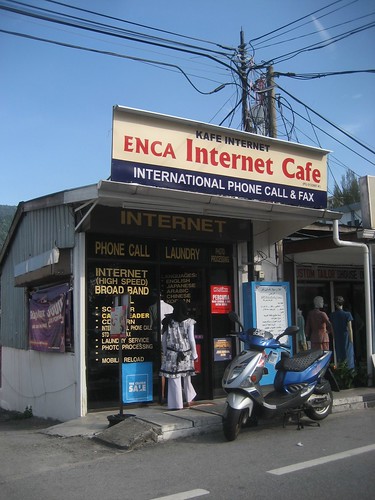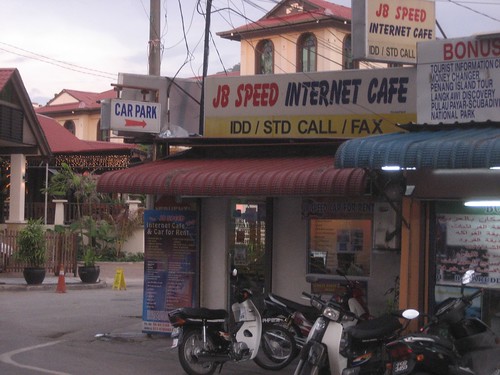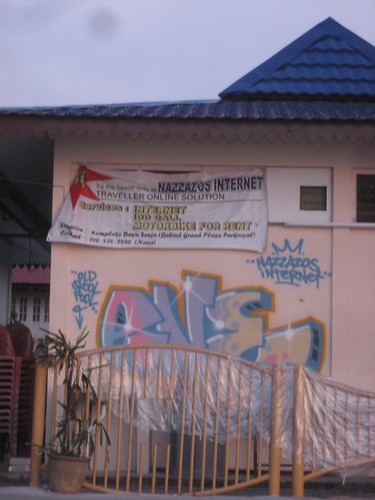One of the best things about working on big interesting projects like books, or editing the Encyclopedia Britannica, is that you encounter people you never would otherwise. Kavi Guppta, a Forbes contributor who writes about digital nomads, talks in his latest piece about rest and nomadism.
For those of you who’ve never heard the term, digital nomads are (generally young) entrepreneurs, freelancers and tech workers who’ve given up jobs in design firms, agencies, and big software companies, sold everything they own, and travel the world while freelancing or building their companies. The movement is relatively new, but now thousands of them circulate through the world’s coworking spaces, hostels, beaches and hiking trails, carrying their backpacks and Macbook Airs.
What makes this possible?
One big enabler is mobile technology. When your professional life fits in a three-pound Macbook Air (which is so popular is might as well be the official laptop of nomads), it becomes a lot easier to imagine working anywhere.
The spread of cheap, high-quality Internet access through much of the developing world makes it possible to Skype with clients, work with colleagues through Google Hangouts and Slack, update code and wireframes, and edit business plans. The growth of cloud computing and online business services means you can handle everything from hiring and payroll to billing remotely.
Air BnB, low-cost airlines, and Web sites that document the local startup scene in Chile or Morocco or Egypt, make adventuring cheaper, easier, and safer. Coworking spaces, where you can rent desks and high-speed Internet access, have exploded in number and popularity.
Digital nomadism is also a means of buying time. For small companies who want to grow by bootstrapping (I.e., self-funding), or who want to “extend the runway” and give their products more time to catch on, south Asia or north Africa offer far lower housing and office costs than established, high-visibility tech centers like Silicon Valley or Stockholm.
Despite its strategic advantages and seriousness, the term “digital nomad,” Guppta says, usually “conjures up images of young tank-top wearing millennials drinking cheap beer and launching startup experiments from a beach. The common misconception is that digital nomads are on a forever vacation, so we probably don’t need rest, right?”
Well, no.
When I talk about rest, I’m talking about something more than just a break. When I rest I’m not moving away from work to binge watch YouTube videos. I’m taking a long walk and enjoying a packed lunch along the river near my apartment. It’s a few hours spent reading on the beach. It’s a thirty-minute run through my neighborhood. It’s prepping dinner in the evening, going back to tap away a post on my laptop, and then coming back to the kitchen to cook.
What I’m doing is giving my mind something else to chew on so it can recharge in an intelligent way. I’ve found that this type of rest helps me come back and tackle problems more efficiently, and often these activities result in a lot of “aha moments” that influence my problem solving skills.
This is very much in line with what I’ve heard from digital nomads I’ve interviewed. What’s impressed me when I’ve asked them about their daily lives and working patterns that their lives aren’t a never-ending mix of work and play. It’s a lot more common for them to develop daily schedules in which they work intensively and with focus in the mornings; then go out and explore the island, or go surfing, or do other cool things; and maybe do a little more work— but less intensive stuff like email and pitching to clients, not coding— in the late afternoon.
There are also some other interesting features of the life:
- Travel forces structure. You have to think hard about what stuff you really need, because most of the time you’re living out of a rucksack. This minimalism also makes it easier to say no to a lot of stuff, because you don’t have space, and helps you focus.
- Being thousands of miles away from clients and traditional offices means that it’s easier not to be distracted by meetings or other things that don’t help you hit your deadlines. Being away from the startup scene also means less time spent at conferences and social events.
- Working out of a space in Thailand or Bali or Colombia puts some useful insulation around your relationship with clients, by making it harder for them to assume that you are at their beck and call
- Being in an exotic location makes rest a lot more enjoyable.
In other words, many of them are discovering the principles of deliberate rest. How much their example will influence places like Silicon Valley remains to be seen; but I think at the very least, if a couple really excellent companies come out of the digital nomad world, it’ll establish the viability of digital nomadism as a productive— and in many ways more focused— way of working, with quite different but very tangible rewards than those available in San Francisco or Mountain View.
(And yes, Kavi does mention me and deliberate rest in the article, so this is all a bit self-referential.)





